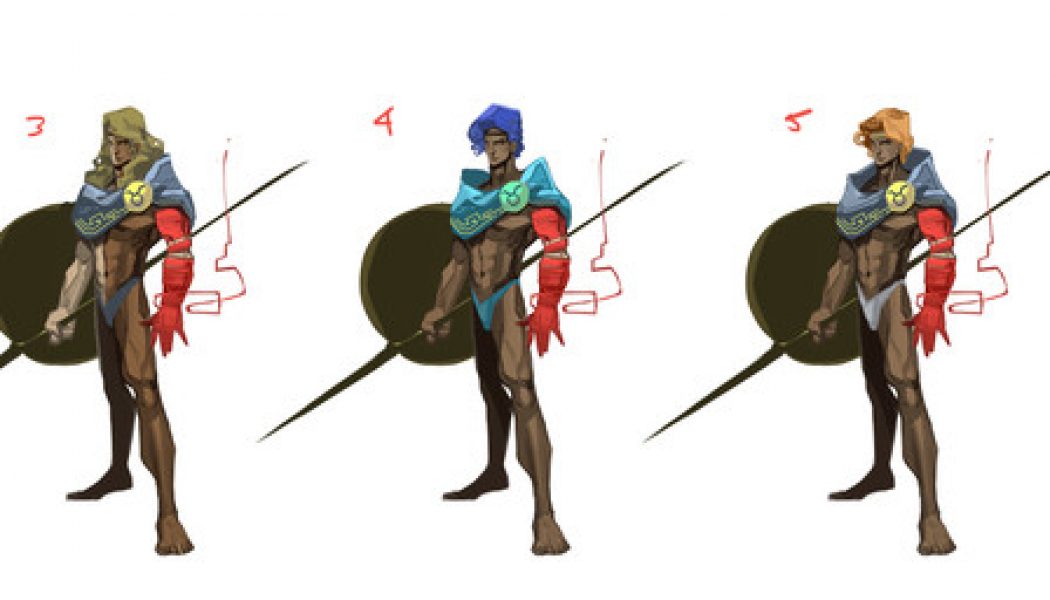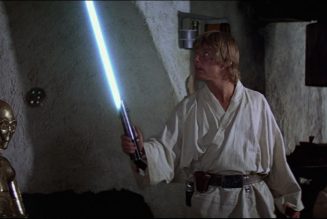In Hades, the legendary Greek hero who killed the Minotaur, Theseus, is a pain in the ass. He’s a bossfight, a blowhard who treats each encounter like an overproduced wrestling match. Zagreus, the cool, collected prince of the Underworld, may have good reason to want to leave, but in Theseus’ eyes, he’ll never amount to more than hellspawn. This dynamic helped highlight just what made Zagreus, Hades’ protagonist, a fan-favorite. But in early versions of the game, Theseus’ role was reversed.
Theseus is hero material in legend only, a sentiment that developer Supergiant Games eventually came to share. During a recent talk on Clubhouse, Supergiant co-founder Amir Rao said that early concepts for Hades starred Theseus. It was creative director Greg Kasavin who flipped the Hades pitch into the award-winning game it is today. “He sort of had this idea that we could probably keep everything in the game, but recast it as Zagreus,” Rao said. “These different ideas, all these different characters, they all kind of came together. Within I think a day or two he had convinced everyone that it was a better idea.”
:no_upscale()/cdn.vox-cdn.com/uploads/chorus_asset/file/22348495/Dude_09.png)
In the early days of development, Hades — then referred to as “Minos” — followed Theseus as he explored the labyrinth of Crete. The roguelike would have capitalized on the twisting nature of the labyrinth to pull off its limitless dungeons. Kasavin tells The Verge that Supergiant wanted to play with the many variations of the Theseus myth as part of the game. “The idea was going to be like each time you play, it’s kind of like a different retelling of the Theseus myth,” he says. Despite going through several iterations, the team felt like they couldn’t get a solid grip on who Theseus was as a hero. “So kind of cerebrally, he was interesting,” Kasavin says. “But when we were trying to bring him to life as a protagonist, he has this risk of being kind of very generic. But as soon as we start adding specific detail to him, he just doesn’t really feel like Theseus anymore.”
:no_upscale()/cdn.vox-cdn.com/uploads/chorus_asset/file/22348500/Artemis.png)
Not only that, but the game just felt too grim, Kasavin says. When the team took their holiday break, Kasavin kept researching. He eventually stumbled across myths about Zagreus, Hades’ son. Something clicked. “It turns out that there are not a lot of myths about Hades, apparently, because the Greeks were just afraid of him,” Kasavin says. “So they didn’t talk about him … It’s like, wait a minute. Hades is one of these super iconic like household name level, Greek gods. And yet there’s so few stories about him and he has a son?”
Kasavin pitched the idea to Rao; it allowed them to rewrite their story into something more exciting but keep many core parts of the game. “We just found a better sort of angle on the protagonist, on the overall theme and on the storytelling technique as well in that one swoop,” he says. “Things actually did come together pretty quickly from there.” It also lightened the tone of the game, taking a grim retelling of myths, and recasting it as a lighter tale about a very powerful, very dysfunctional family — one where everyone is a little petty, no one ever really dies, and Cerberus, the fearful hound of hell, is just the family dog.
:no_upscale()/cdn.vox-cdn.com/uploads/chorus_asset/file/22348516/Dude_iso_04.png)
As for Theseus, he too got a rewrite from a boring hero into a showboating villain. Kasavin says that his return to the game was “not a foregone conclusion by any means,” but that allowed the team to play with his character more. “The part where he is bratty is something that I feel is kind of deeply rooted in the mythology about him,” Kasavin says. “He’s considered a hero, but some of the actions he takes are highly questionable.” In death, he’s a little more self-aware, paving the way for Hades to cast Theseus and Asterius as a tag-team, a pair of Luchadors from beyond the grave. “Theseus has the presence of mind in the underworld to acknowledge that his own fame, his own heroism is linked to his encounter with the Minotaur,” he says. “And he finds the Minotaur in death and he’s like, Oh, you were my greatest opponent. You were awesome.’”
Against Zagreus, Kasavin says, Theseus is a self-righteous, single-minded hero who won’t listen to anyone. He’s overconfident and even obnoxious in every aspect of his personality, with one exception: “If he has one redeeming quality it’s that his friendship with Asterius is sincere.”










